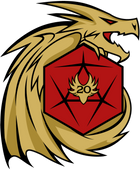Dungeons and Dragons has a bit of a learning curve. Less so with more recent editions, but even when learning 5th Edition, it can take a while to figure out all the rules and concepts. If you’re looking to learn 3rd, 2nd, or 3.5th Edition, there’s even more minute things to keep track of.
Whether you’re learning yourself, or looking to introduce a friend, there are a number of ways to get started learning DnD. The method you use will depend on your personal learning style, which edition you want to use, and a few other factors.
DnD learning methods can break down as such:
Reading the Rulebooks

Probably the most obvious way to learn to play DnD is to simply read the rulebooks. The Players Handbook and the Dungeon Master’s Guide, regardless of edition, are specifically designed to walk a new player through the creation of character, or a world, and how they are meant to play them.
Pros
If you’re looking to get into Dungeons and Dragons, chances are that you have the books already. No need to go searching and looking for extra material. Plus, by reading the books, you’re getting the most accurate version of the rules that it’s possible to get. No human re-interpretation or addition of opinion that you’re likely to get by learning from a third-party.
Cons
You’re going to have to do a lot of reading. And it’s not always written out in the plainest of language, either. While this method is the most accurate, it’s not going to be suitable for people who learn by doing or listening, rather than visually.
Reading/Watching Guides

If you do a quick search online, you can find plenty of guides on how to play the game! These articles and videos can range from the whole of character creation, to effective ways to play individual classes, to the minutia of how to select DCs for skill checks. We even have a few of our own here!
Pros
Guides can get down into the details of a particular area that you’re struggling with, or simply give you a broad overview of a topic. Whatever it is that you need to understand, there’s a good chance that there’s multiple explanations using different language, to make sure that you can reach and understanding. Plus, if you don’t like reading articles, there are plenty of videos and podcasts out there, too.
Cons
Most of the video guides, and the majority of the written ones, are for 5th edition Dungeons and Dragons. If you want to find content for other editions, you might have to do a bit of digging, or settle for less polished resources. Plus, these guides have to be made, so there’s going to be a telephone-game effect, wherein the content is slightly reinterpreted each time its communicated, and thus slightly less than book accurate.
Watching People Play/Streamed Games
If you don’t have the attention span for reading the books or the guides, you can always simply watch people play the game, and learn by observation. You can sit in on a game with your friends, or you can choose from any of the hundreds of streamed and recorded games online.

Pros
Watching a game is more likely to keep your focus than simply reading the nuts and bolts. It’s also more likely to spark your inspiration and enthusiasm, and give you ideas for when you get around to actually playing yourself.
Cons
Live games don’t always actually follow the rules. They get bent or broken all the time – which isn’t a problem for the players or the game itself, but it does present a problem for people trying to learn said rules. After all, its best to know what you’re doing at the start, so you can intentionally do it wrong later, rather than flounder with false understanding.
Watching games can be inspiring, but inspiration isn’t really what you want for rules and regulations.
Diving Right In

If you just can’t wait to play the game, or you learn best from doing rather than watching or reading, you can always just jump into it. The best way to learn how to swim, after all, is simply to make the dive.
Pros
This is best way to remember the rules, and really understand how they work within the context of the game. By experiencing them yourself, you have the understanding of memory, rather than theory. All without having to slog through hundreds of pages of reading or hours of watching.
Cons
It’s best to try this method with at least one or two experienced players acting as a guide. Otherwise, you’re going to be floundering for a while, with gameplay stalled while you look up each and every aspect of the game as you’re trying to do it. And that doesn’t make for very engaging gameplay.
Which Method is Best?
If it isn’t apparent by the ‘if’s and ‘but’s above, there is no real ‘best method’ to learn to play DnD.
If you can learn by reading, I’d personally recommend simply reading the books. It’s how I learned 5e, although not 3.5e. I was too young when I learned 3.5e to read and understand the books myself, so my parents taught me by explanations and immersion. Those methods took longer, but for a younger child they worked far, far better than simply reading.
A good method for 5e in particular is the Starter Set, which includes an excellent module and a simple written guide to starting out.
Whichever method keeps you the most engaged, and best suits your learning style, is what you should go with yourself.
Are there any learning methods that we missed? Which one worked best for you, when you were learning to play Dungeons and Dragons?





